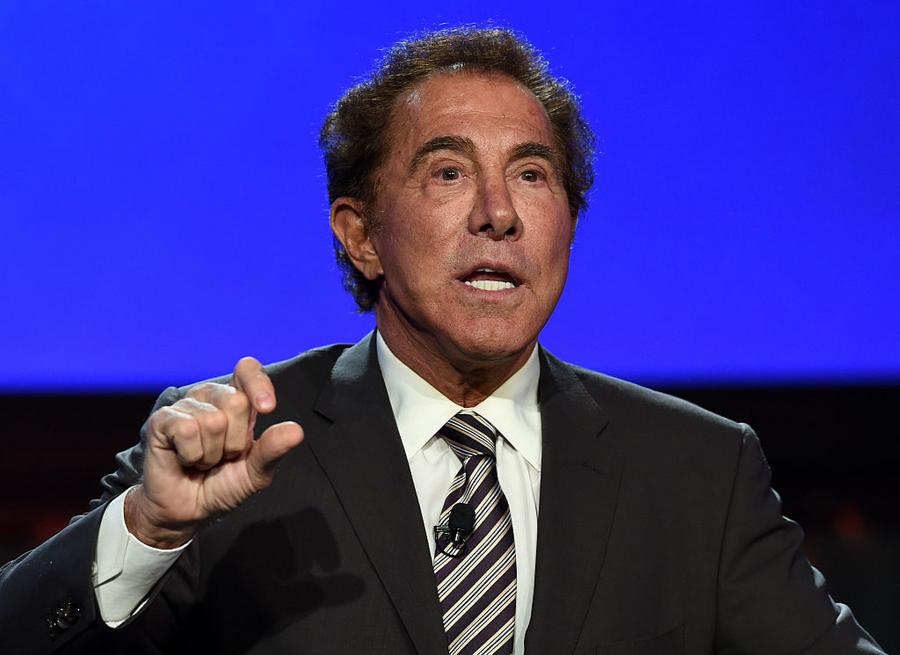Reporters, journalists, and publishers have been wringing their hands in worry ever since it was revealed that PayPal billionaire Peter Thiel was secretly funding a lawsuit against Gawker that is intent on taking down Nick Denton's popular gossip site empire. Gawker is facing a $140 million verdict and rumor has it, the legal battle has put Nick Denton and his websites in financial peril. However, Thiel isn't the first billionaire to wage a war against the media. Money has been at odds with the First Amendment many times. Here are just a few of the other examples:
The casino mogul once sued a Wall Street Journal reporter when an article described him as "foul mouthed." That suit is still ongoing. Adelson also sued former Las Vegas Review Journal columnist John L. Smith into near bankruptcy over a passage about Adelson in Smith's book. Adelson recently purchased the Review-Journal. Smith, who reported on the casino industry, was told he would not be allowed to write about two of its major players (Adelson and Steve Wynn). He resigned in April 2016.

Ethan Miller/Getty Images
Steve Wynn
Journalist Lowell Bergman alleges that a Frontline documentary on casino mogul Steve Wynn was killed, due to a fear of litigation. After a hedge fund manager spoke at an investigative reporting conference held by Bergman, Wynn sued him. Wynn lost the lawsuit, but Frontline decided not to air the documentary.
Frank VanderSloot is an Idaho-based entrepreneur, radio network owner, rancher, and GOP political campaign financier. He sued Mother Jones over an article about his contributions to Mitt Romney's super PAC. Mother Jones eventually won the lawsuit, but it took two and a half years and millions of dollars in legal fees to do so. Afterwards, VanderSloot vowed to create a $1 million fund to pay the legal expenses of people suing the "liberal press."
Koch Brothers
New Yorker writer Jane Mayer found out that a private investigator hired by the Koch Brothers was trying to dig up dirt on her after she wrote about David and Charles Koch's roles in the Tea Party movement. Mayer also learned that someone had launched a smear campaign against her. Documents were fabricated showing a number of false claims of plagiarism charges against her.
Donald Trump filed a $5 billion defamation lawsuit in 2009 against an author who wrote that the GOP presidential nominee was not a billionaire. Trump lost the suit. Part of Trump's presidential campaign has been a pledge to open up libel laws, so that people can sue reporters who write negative articles.
Real Estate billionaire Jeff Green filed a $500 million libel lawsuit against the Tampa Bay Times over articles the paper published during his unsuccessful bid for the U.S. Senate in 2010. One article reported on the Palm Beach billionaire's role in a condo complex sales effort, and the other described his partying activities while he was on a yacht. The newspaper recently settled the six-year-long lawsuit for an undisclosed sum.
This list grows longer, when you include foreign billionaires. In 2008, a Russian oil magnate sued The Economist for an article that insinuated he had ties to Russian President Vladimir Putin. Saudi Prince Alwaleed bin Talal sued Forbes for underestimating his net worth on its annual billionaires list. Canadian billionaire Mitchell Goldhar sued the Israeli newspaper Haaretz that dared to question his management of a soccer team.
These are just a few examples of a growing trend of billionaires launching expensive legal battles against journalists and publications, in an effort to control the news. Gawker is the most recent target, and while the content published by its sites may not be of the caliber of The New York Times, it stands to reason that if Gawker can get sued, so can the Old Gray Lady. In fact, the precedent this sets is dangerous for print, digital media and bloggers, as well.
/2017/07/GettyImages-619458254.jpg)
/2016/08/GettyImages-578544652.jpg)
/2010/05/Peter-Thiel.jpg)
/2023/05/GettyImages-1167010559.jpg)
/2016/01/GettyImages-456491900-2.jpg)
/2020/07/mlp.jpg)
/2010/01/Deryck-Whibley.jpg)
/2020/07/jl.jpg)
:strip_exif()/2020/06/taylor.png)
/2010/01/GettyImages-183679600.jpg)
/2022/10/Anne-Murray.jpg)
/2014/09/Kim-Delaney.jpg)
/2009/11/Tim-Duncan.jpg)
/2023/01/lance-armstrong.jpg)
/2021/04/Sara-Gilbert.jpg)
/2025/03/Kelli-Ferrell.jpg)
/2010/05/Jaleel-White.jpg)
/2013/02/Walt-Frazier.jpg)
/2011/04/Mike-Fisher.jpg)
/2023/05/brian-den.png)
/2021/03/Morgan-Wallen2.jpg)
/2020/03/kid-rock.jpg)